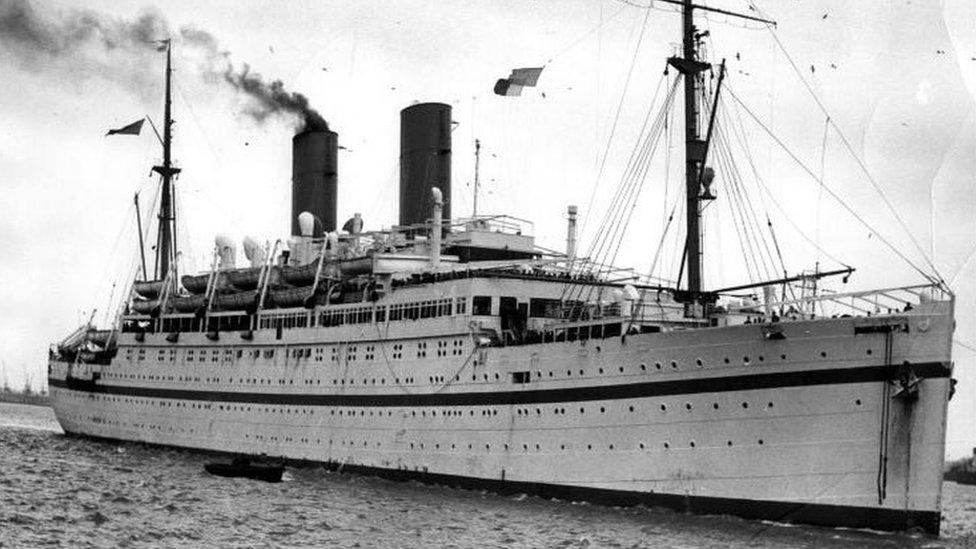Windrush row over criminal deportation flight to Jamaica
- Published
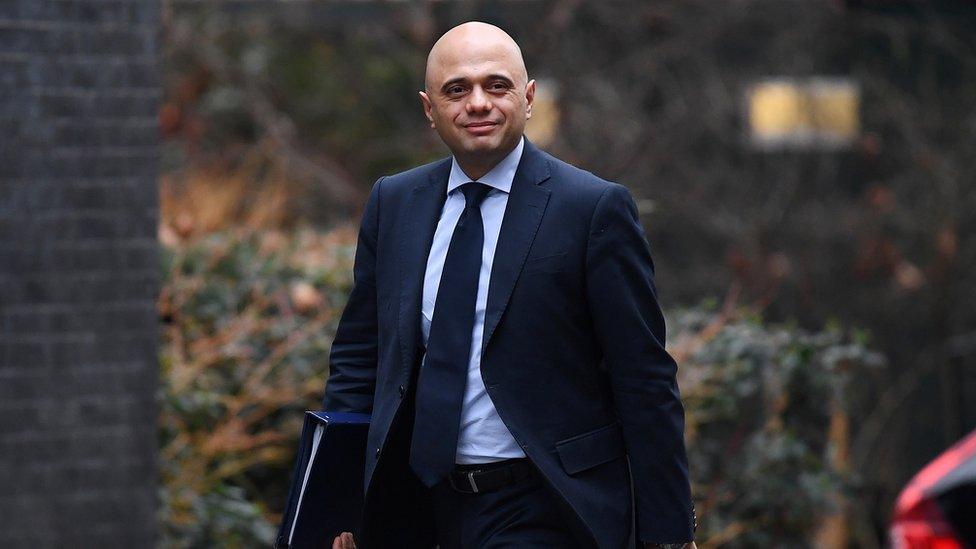
Sajid Javid said none of those being deported was a British citizen, or a member of the Windrush generation
Home Secretary Sajid Javid has defended the deportation of a group of people to Jamaica on Wednesday - the first such flight since the Windrush scandal.
The people on the flight included 29 "serious foreign criminals" including a murderer and rapist, the Home Office added.
Campaigners insist that some of them have been unfairly targeted.
Some people, including an ex-Army soldier with PTSD, were granted a last-minute reprieve, a lawyer said.
Campaigners claim the government's "hostile environment" immigration policy was to blame for the deportations and that many of the deportees had been in the UK since childhood.
Those given a reprieve and not immediately being deported are believed to include a man who has applied to remain in the UK under the Windrush scheme.
The scheme was set up to assess the cases of those who may have been caught up in the scandal involving wrongful deportations.
On Wednesday afternoon, the Home Office said the chartered flight had flown to Jamaica, and the people on board had committed crimes with a total combined prison sentence of more than 150 years.
The individuals on the flight - who numbered more than 30 - included 14 people convicted of drugs offences, six people convicted of a violent crime and one person convicted of dangerous driving.
Online petition
The Windrush generation is the name for an estimated 500,000 people from Caribbean countries who arrived in the UK between 1948 and 1971.
They were granted indefinite leave to remain, but changes to immigration law in 2012 meant many who arrived as children, without their own documents, found themselves unable to prove their status.
Some were subsequently held in detention or removed, despite having lived in the UK for decades.
Campaigner and solicitor Jacqueline McKenzie said: "We are shocked that the government, not having received the conclusions of the Windrush Lessons Learnt Review, should resume these mass deportation flights which were stayed in light of the Windrush scandal."
None of Ms McKenzie's clients was due to be on the flight but she said she is in touch with lawyers who successfully worked to keep some of the group in the UK.
Other than the man applying under the Windrush scheme, they include three who are due to give evidence to an inquest in March after witnessing the death of an inmate at Morton Hall Immigration Removal Centre, Lincolnshire.
Former soldier and father-of-five Twane Morgan is also believed to have had a reprieve. Some 91,000 people have signed an online petition supporting him.
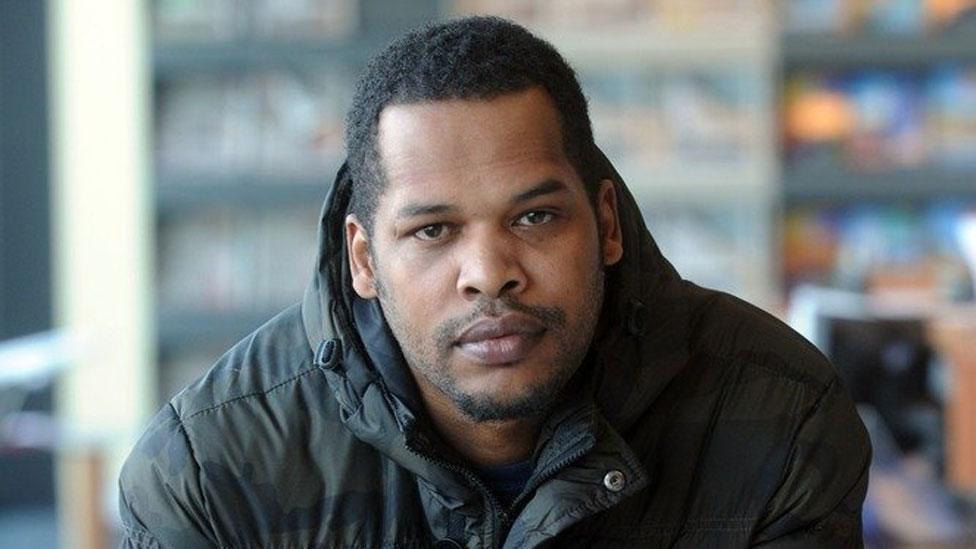
Former soldier Twane Morgan was due to be deported, but has been granted an injunction
Mr Morgan, 36, was granted an injunction on Tuesday evening, meaning his case will be looked at again.
He arrived in the UK in 2003 and joined the Army the following year. He was discharged in 2007 with post traumatic stress disorder after two tours of Afghanistan but had not served long enough to become eligible for British citizenship.
His sister, Tenisha, said "When he came out of the Army he didn't get any support or treatment, he was left to himself to integrate back into society and that didn't help, it made him who he is today - a shell of himself, zombified."
In 2011, Mr Morgan - who was living in Birmingham - was jailed for six years after assaulting a man. He served three.
Tenisha added: "I don't condone violence, whether it's my brother or not, but at the end of the day, had he got treatment I don't think this crime would have been committed."
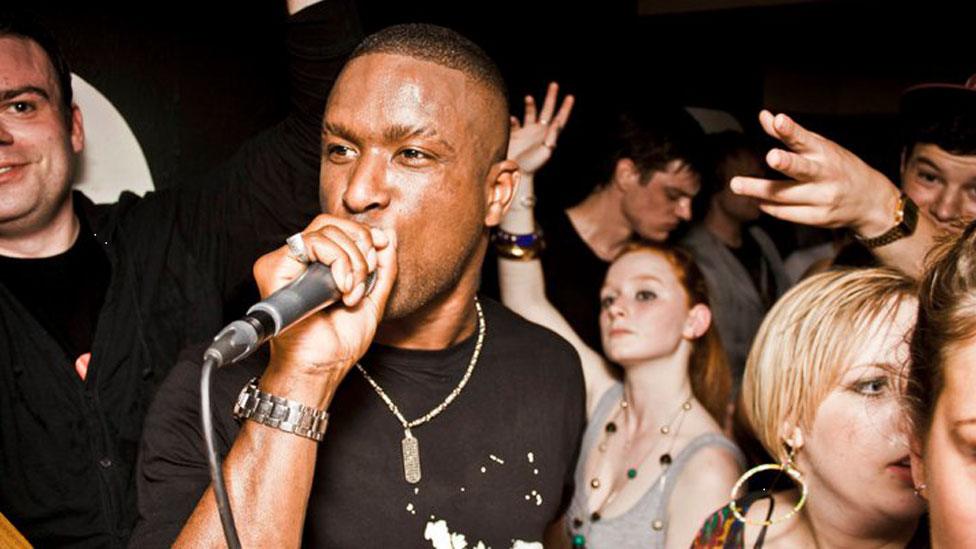
Owen Haisley says he is being torn away from his family and if he had a British passport, he would be allowed to continue with his life
Owen Haisley, a 41-year-old from Manchester, is also now understood to have had his deportation halted, according to his friends.
His MP, Labour's Lucy Powell, tweeted that it may be a temporary reprieve and that she would "continue to do all I can in this case".
Allow X content?
This article contains content provided by X. We ask for your permission before anything is loaded, as they may be using cookies and other technologies. You may want to read X’s cookie policy, external and privacy policy, external before accepting. To view this content choose ‘accept and continue’.
Mr Haisley entered the UK on his mother's passport as a four-year-old, and at the age of 11, was granted indefinite leave to remain.
However, those imprisoned for a criminal offence lose that right and have to reapply, and when Mr Haisley did so after completing a jail term for assault in 2016, his application was rejected.
'Tearing me away from family'
He told BBC Radio 5 Live: "I hold my hands up to what I've done but I've served my time, I've done my prison sentence, I've done all my rehabilitation, I've done my community service.
"I've done everything that's been required of me, and […] they're trying to tear me away from my family and my children and send me somewhere that I've never been back to.
"If I had a British passport and [had] done them [the] things and went into prison and came out of prison, I would have been able to continue to get on with my life and be normal like any other person. I just want to know why I can't get that second chance."
Mr Haisley has lived in Manchester for 29 years and said he didn't apply for a British passport as he previously had no need to do so.
His children are aged five, seven and nine, and he says he will now only be able to see them in summer holidays, and over Skype, until he can apply to return in 10 years' time.
Mr Haisley, who considers himself to be British, added: "The fact they're trying to tear me away from my children and say I can keep in touch with them on the other side of the world on Skype, that's just outrageous.
"I don't think any father out there, any parent out there, would think that's acceptable."
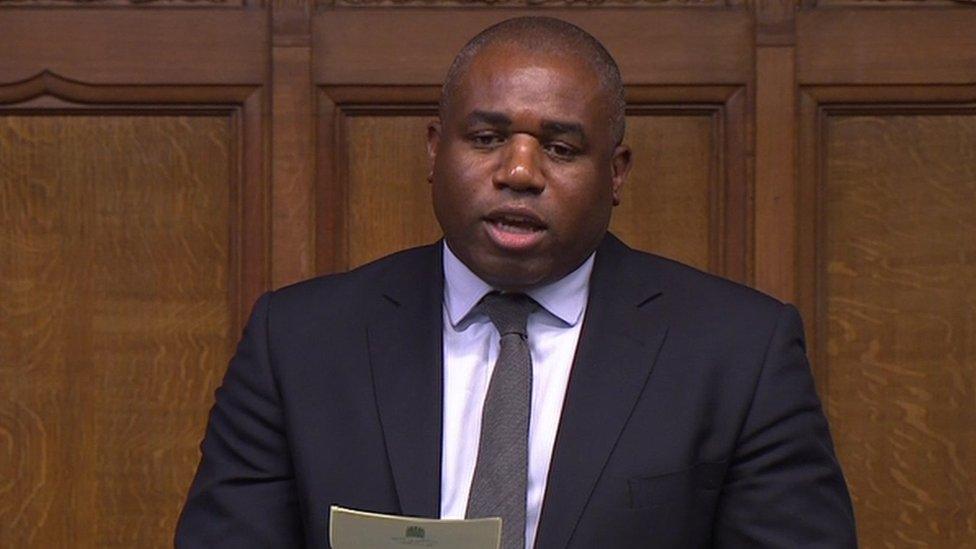
David Lammy raised the issue in the House of Commons on Tuesday
Home Secretary Sajid Javid said last year that at least 63 members of the Windrush generation - 32 of whom had been labelled foreign offenders - may have been wrongly deported to Jamaica.
In the Commons on Tuesday, Labour MP David Lammy asked Mr Javid how he could be confident that none of the men due to be deported on Wednesday was also a victim of Home Office mistakes.
Mr Lammy suggested the men were easy targets for deportation because of their race, asking: "Why is it that in this country, black lives mean less?"
Mr Javid hit back, insisting that none of those being deported was a British citizen, or a member of the Windrush generation.
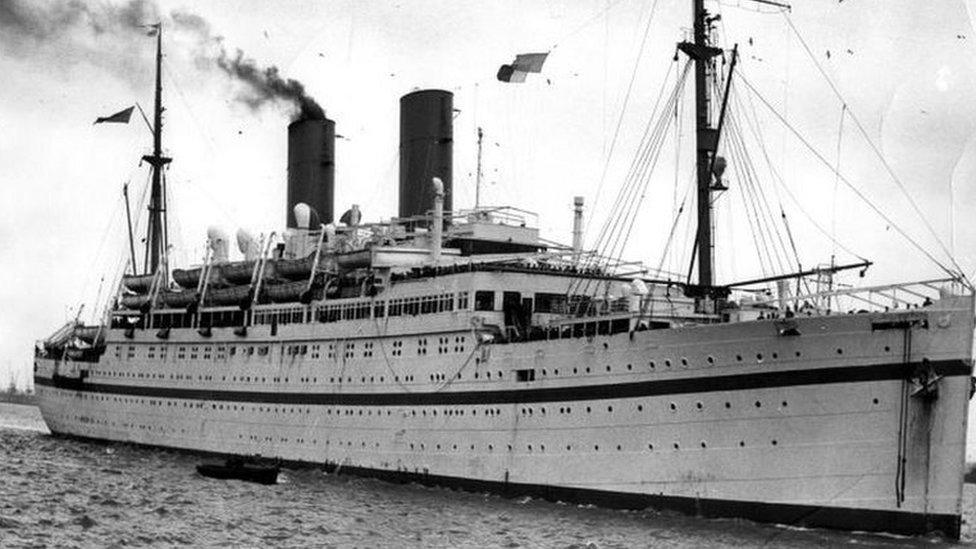
The Windrush generation were named after the ship that brought the first West Indies immigrants to Britain in 1948
'Lives at risk'
The Jamaican High Commissioner, Seth George Ramocan, said although it was "the same community we are dealing with" - the Jamaican community - it was important to be clear that there was a distinction between members of the Windrush generation and other migrants.
"Britain is a sovereign country... we have to abide by what the law of the land is," he added.
However, Mr Ramocan had called for "sensitivity" and "compassion" in the case of Mr Morgan.
The Home Office said it uses scheduled commercial flights for deportations but charters flights where this is not an option, especially involving foreign offenders.
- Published5 February 2019
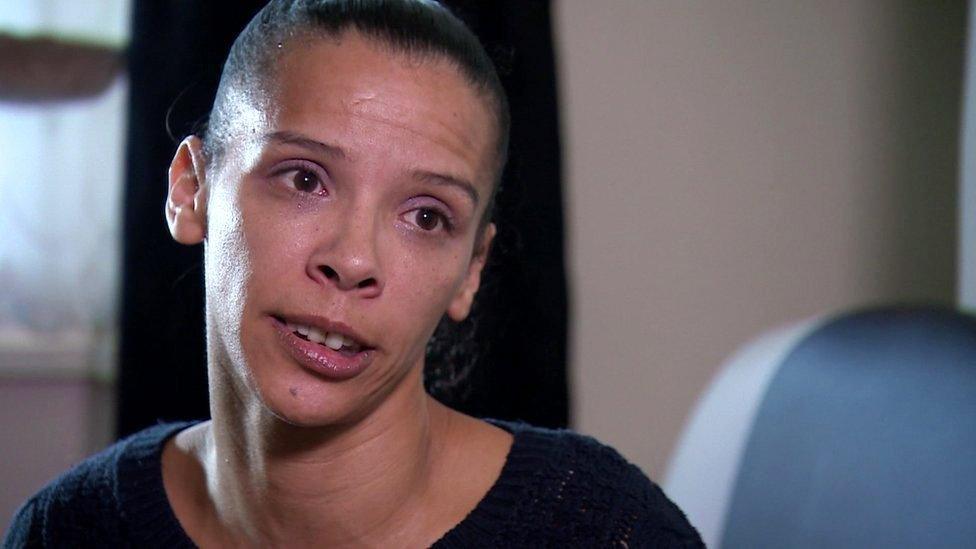
- Published3 December 2018
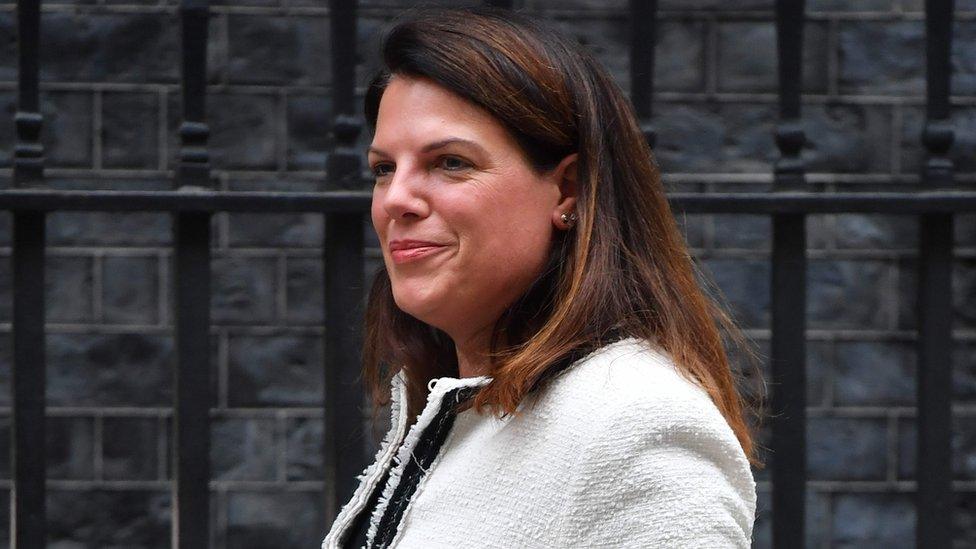
- Published28 April 2018
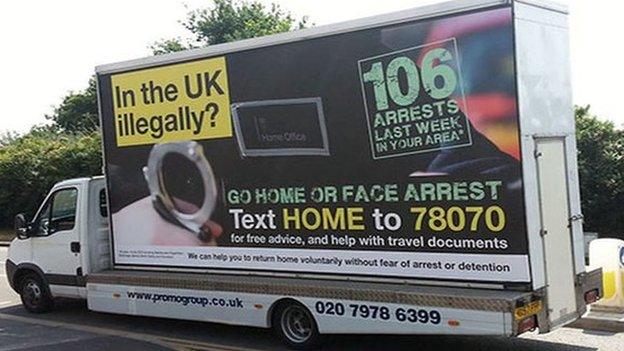
- Published19 July 2018
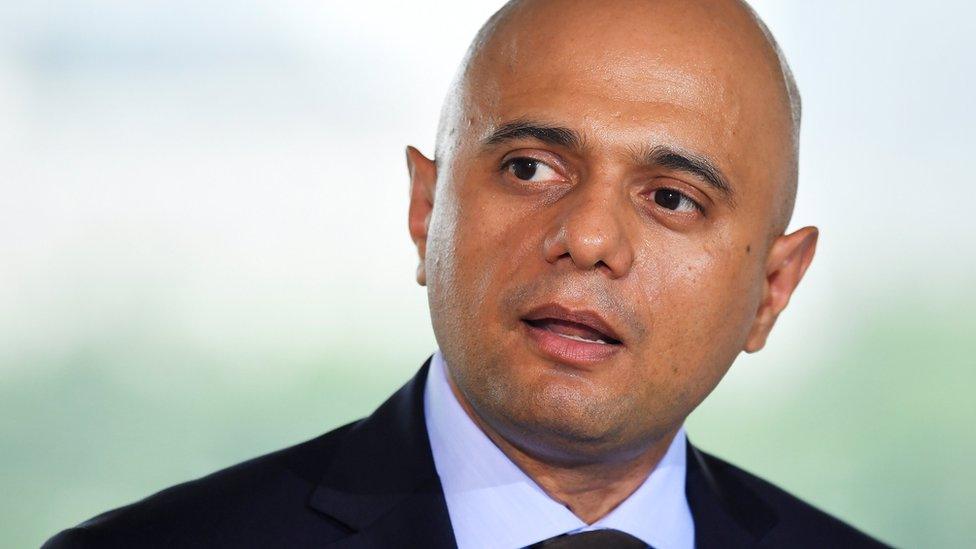
- Published25 August 2018

